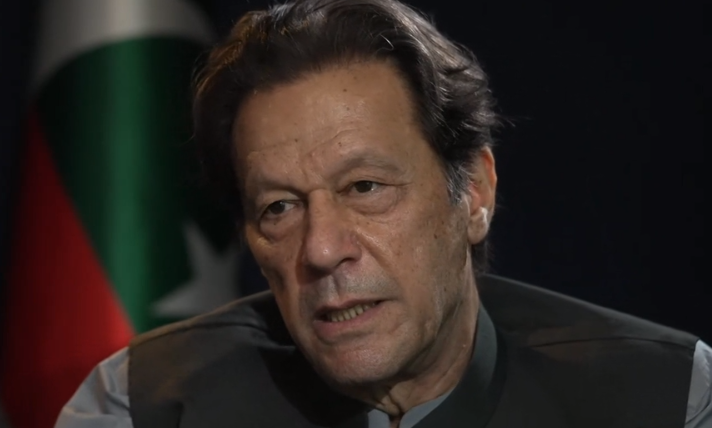
A three-member bench of the Lahore High Court (LHC) has reserved its decision on a writ petition filed by Imran Khan, the founding chairman of the Pakistan Tehreek-e-Insaf (PTI), against the election appellate tribunal's dismissal of his appeal regarding the rejection of nomination papers by the returning officer (RO).
The former prime minister had submitted his nomination papers from NA-122 Lahore and NA-89 Mianwali for the general elections scheduled for Feb 8, both of which were rejected by the respective ROs. Subsequently, he contested these decisions before the election appellate tribunals, where his appeals were also dismissed.
In response, Imran filed a writ petition with the larger LHC bench against the tribunal's decision. During the recent proceedings, Imran's counsel contended that the Election Commission of Pakistan (ECP) lacked the authority to disqualify an individual, emphasising that such matters fell within the jurisdiction of the courts.
He pointed out that issues related to Imran's sentence were already under consideration by the Supreme Court, which had consistently held that the ECP did not possess the power to disqualify individuals. Addressing another objection regarding Imran's seconder, whose residency was disputed by the Pakistan Muslim League-Nawaz (PML-N), the former premier's counsel argued that the seconder originally belonged to the same constituency (NA-122).
Read also: Imran out of election race as rejection of nomination papers upheld
However, his name was omitted after a fresh delimitation was carried out on the orders of the LHC, and there was no official gazette notification for this delimitation. The representative from the ECP argued that a contestant must meet the constitutional requirements of articles 62 and 63, highlighting the necessity for a prime minister to be honest. Imran's counsel countered that matters pertaining to disqualification were still pending before the court, questioning the rejection of a contestant's nomination when their cases were awaiting resolution in a superior court.
Following detailed arguments, the bench reserved its decision. In earlier proceedings, Imran's counsel had argued that the rejection of his client's nomination papers was unjust, particularly in the context of the Toshakhana case.
According to Imran’s counsel, the sentence in the Toshakhana case was based on moral turpitude, which should not be considered sufficient grounds for rejecting nomination papers. He added that there was no interpretation of the moral turpitude in the judgements.
The discussion also delved into the interpretation of moral turpitude and the reliance of the ROs and election appellate tribunal on the Toshakhana case's arguments. The bench queried the ECP counsel about the petitioner's alleged moral turpitude sentence and its duration. The ECP's counsel pledged to assist the court on this matter. Imran's representative reiterated that the Toshakhana sentence formed the basis for decisions by ROs and the election appellate tribunal.



1731975305-0/Untitled-design-(40)1731975305-0-165x106.webp)
1731975060-0/Untitled-design-(39)1731975060-0-165x106.webp)
















COMMENTS
Comments are moderated and generally will be posted if they are on-topic and not abusive.
For more information, please see our Comments FAQ